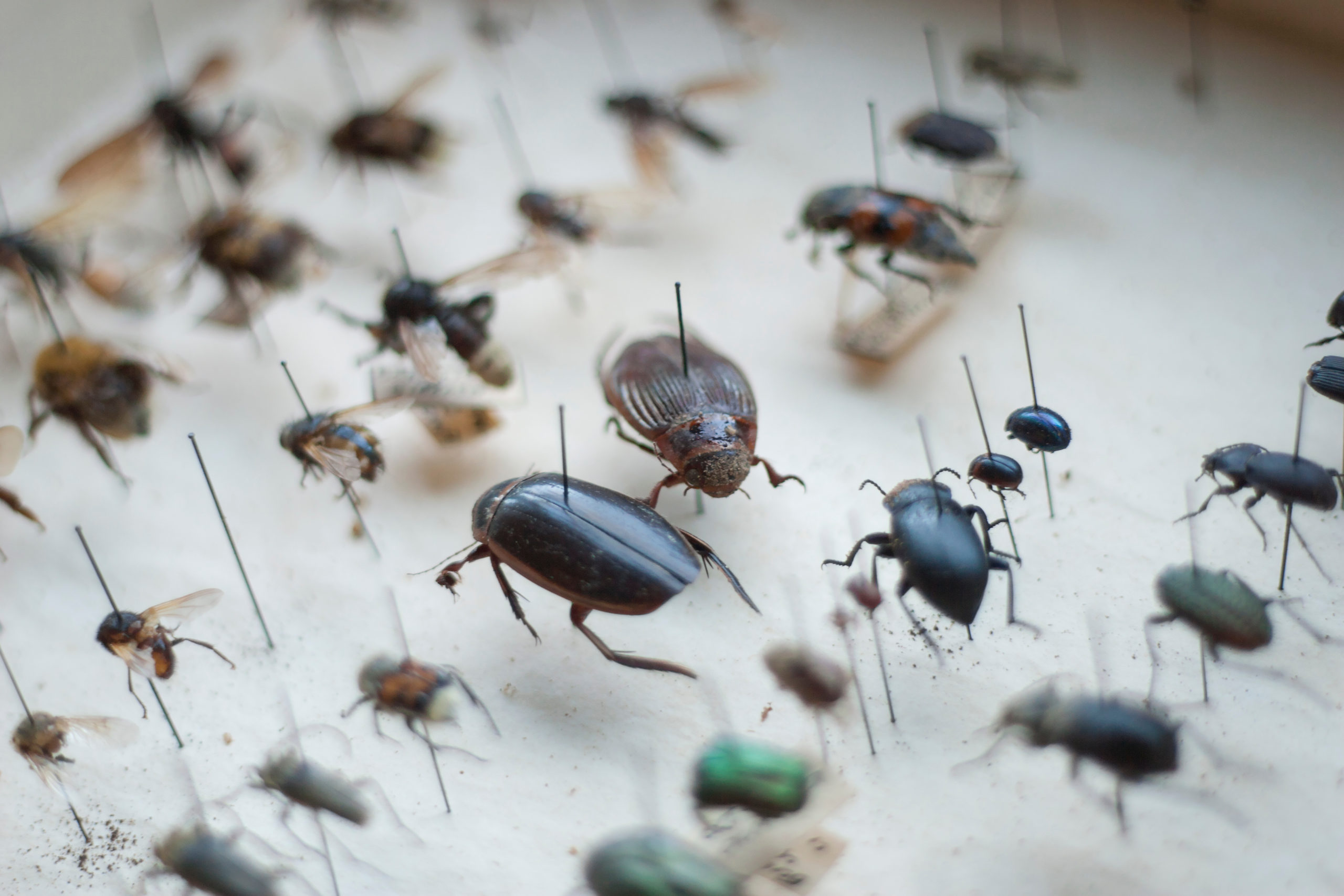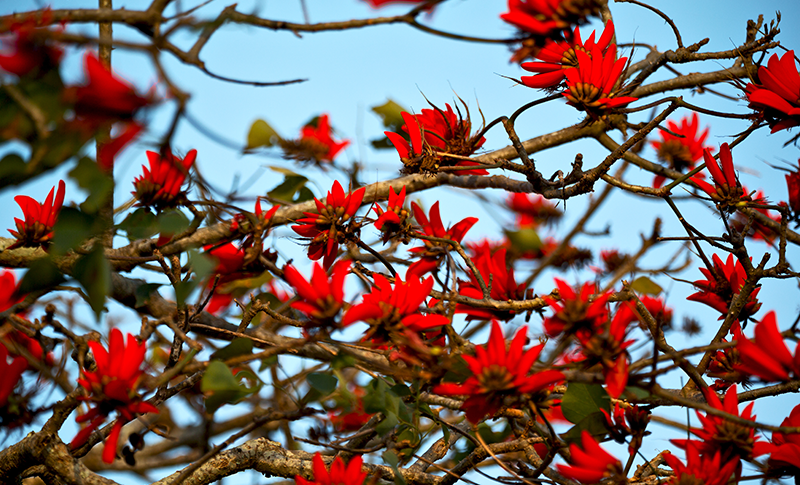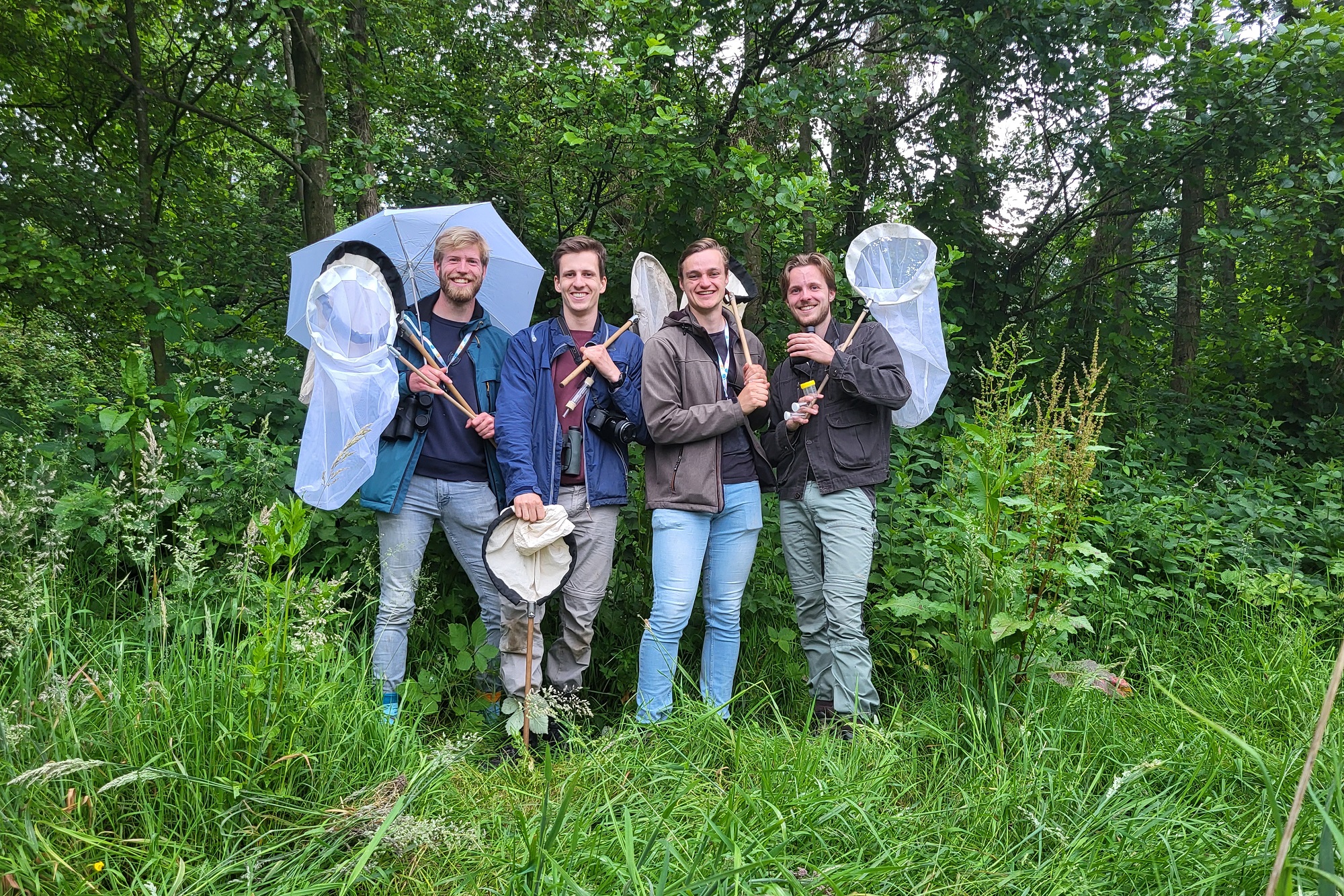‘In the end we will conserve only what we love; we will love only what we understand; and we will understand only what we are taught.’
– Baba Dioum
We live in a time when many species are in danger of becoming extinct before we have learned anything about them. At the same time, most biology students cannot distinguish a beetle from a bug and all our taxonomic knowledge lies with a small group of grey old men.
We need taxonomy – the description and classification of life forms – in order to learn how to recognize and protect life on Earth.Despite this, there is less and less money available, less interest and much knowledge is slowly being lost. We therefore object to the recently published article ‘Goodbye pins and needles’ on Resource’s website. In our opinion, it wrongly suggests that (1) we can do without taxonomy, (2) collecting is not important and (3) collecting insects contributes to the global decline in insect populations. We would like to offer a considerably more nuanced perspective.
The article waves goodbye to an imaginary taxonomist brandishing his pins. The archetype of the 19th-century butterfly catcher can indeed be dismissed today, but not because taxonomy has had its day. On the contrary. Genetic research will not be able to replace specimen collection any time soon, precisely because the DNA code is still unknown for species on which we need a lot of taxonomic expertise. Nor can genetic research replace the most important side effect of taxonomy: discovering the love of nature by seeing it with one’s own eyes – something that the famous quote from Baba Dioum illustrates nicely.
Whether killing insects is necessary for education and research is an important question. Today’s taxonomists use macro photography, image recognition and molecular techniques, but do still collect insects when necessary. Anyone who researches biodiversity has to collect material sooner or later. Without collection-based research, we would have no idea that there was an insect decline going on in the first place. In our opinion, calling a halt to collecting entirely is counterproductive in this respect. The collected material not only serves educational purposes, but is also a resource for future research. As long as they are well preserved, specimens are of increasing value for all kinds of future genetic, toxicological, taxonomic and ecological research. Of course, the collecting and killing of insects should be done with great care and only when strictly necessary.
Finally, let us look at the facts; collecting insects does not affect their populations. In fact, unthinking everyday choices we all make result in masses of dead insects, many times more than what is collected throughout the Pyrenees course. Think, for example, of the immediate impact of mowing the lawn or driving a car or the indirect effects of eating sprayed crops, using DEET or defleaing your pet.
It is ‘five to twelve’, the very last chance we have to turn things around and give as many species as possible a sustainable future. For this very reason, let us pay more attention to our choices and honour the species diversity around us. Not by letting them quietly disappear through our thoughtlessness, but by seeking them out, learning about them and thus being able to protect them.
Eva Drukker (PhD), Rick Buesink and Corné van der Linden (Master’s students) in Biosystematics, also supervisors on the Pyrenees excursion
This letter is a response to the article ‘Goodbye pins and needles’, in which university professor Nina Fatouros explains why students no longer kill insects during the annual Pyrenees excursion.

 Text: Eva Drukker (PhD), Rick Buesink and Corné van der Linden (Master’s students). Photo: Shutterstock
Text: Eva Drukker (PhD), Rick Buesink and Corné van der Linden (Master’s students). Photo: Shutterstock 

